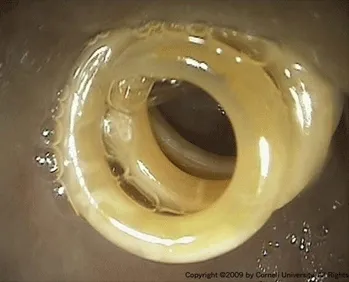It’s a common concern for dog owners: can the beloved furry friend in your life pass on parasites to you? When it comes to roundworms, the answer is a definitive yes, posing a significant health risk not only to your dog but to humans as well. These pervasive intestinal parasites are the most common found in dogs, and nearly all dogs will encounter them at some point, particularly during puppyhood. Understanding how roundworms are contracted, how they affect your dog, and crucial prevention strategies is vital for maintaining a healthy environment for both your pet and your family.
The transmission of roundworms is multifaceted, making them easily spread and challenging to manage. Dogs can acquire roundworms even before birth, as the mother can pass them to her puppies while they are still developing in the womb. Post-birth, puppies can ingest larvated eggs from contaminated environments or ingest young worms directly from their mother’s milk. Another common route of infection occurs when a dog consumes small prey animals, such as mice, that harbor roundworm larvae within their tissues. This complex transmission cycle highlights the importance of consistent preventative care and hygiene.
How Roundworms Affect Your Dog
The primary habitat for adult roundworms is your dog’s intestinal tract. While many dogs show no outward signs of infection, particularly in milder cases, significant infestations, especially in puppies, can lead to a range of concerning symptoms. These may include diarrhea, vomiting, unexplained weight loss, a dull and lackluster coat, and a noticeably distended abdomen, often described as a “potbelly.” In more severe instances, if the roundworms migrate into the lungs, your dog may exhibit a cough. You might also directly observe adult roundworms in your dog’s feces or vomit. They typically appear as white or light brown, elongated, string-like organisms, often several inches in length. Early detection and treatment are crucial to prevent severe health complications.
Preventing Roundworm Infections in Dogs
Given the numerous ways roundworms can infect your dog, a proactive and consistent prevention strategy is essential. Maintaining a clean living environment for your dog is paramount. This includes regularly removing and properly disposing of feces, as this is a primary source of infective eggs. If possible, prevent your dog from scavenging or consuming wild animals, as these can act as intermediate hosts for the parasite.
For puppies, a strict deworming schedule is critical. Puppies should be treated at 2, 4, 6, and 8 weeks of age, followed by monthly preventive treatments thereafter. Regular fecal examinations, conducted two to four times during the first year of life and annually for adult dogs, are vital for monitoring and early detection. Nursing mothers should also be kept on a monthly preventive program and treated concurrently with their puppies to minimize the risk of transmission. It’s important to note that many heartworm preventives also offer protection against roundworms. Consulting with your veterinarian is the best way to determine the most appropriate and effective prevention and treatment options for your specific dog. For those seeking accessible options, exploring heartworm medication for dogs over the counter might be a consideration, but always under veterinary guidance.
 Roundworms in dog intestines
Roundworms in dog intestines
The Human Risk: Can You Get Roundworm From Your Dog?
Yes, roundworms pose a significant zoonotic risk, meaning they can be transmitted from animals to humans. Direct contact with contaminated soil or infected dog feces can lead to accidental ingestion and subsequent infection in people. Roundworm eggs are remarkably resilient and can accumulate in large numbers in soil where dogs frequently defecate. Once humans are infected, the migrating larvae can cause a range of health issues, potentially affecting the eyes, lungs, heart, and even the nervous system.
Special precautions are necessary to protect children, who are particularly vulnerable due to their tendency to play in areas where animals may have deposited feces. It is crucial to prevent children from playing in soil that may be contaminated. For individuals who have direct contact with soil that might be exposed to pet feces, wearing gloves and practicing diligent handwashing immediately after contact is strongly recommended. This is an important consideration alongside general pet hygiene, such as ensuring you don’t can your dog get lice from you or other communicable diseases.
Protecting Your Family from Zoonotic Parasites
Preventing roundworm transmission to humans is a shared responsibility. This involves rigorous deworming of pets, maintaining a clean home and yard, and practicing good personal hygiene. Regular veterinary check-ups for your dog are not just for their health but also for the health of your entire household. When considering parasite control, remember that a comprehensive approach is best, addressing fleas and ticks as well, which can sometimes be an indicator of broader parasite issues. Looking into over the counter flea treatment for dogs can be part of this strategy, but always consult your vet.
The cycle of infection can be broken with consistent effort. By understanding the risks associated with roundworms and implementing thorough prevention strategies, you can ensure a safe and healthy environment for both your beloved canine companions and your human family members.
For veterinary professionals, more detailed information on roundworms can be found at https://www.capcvet.org/guidelines/ascarid/.
